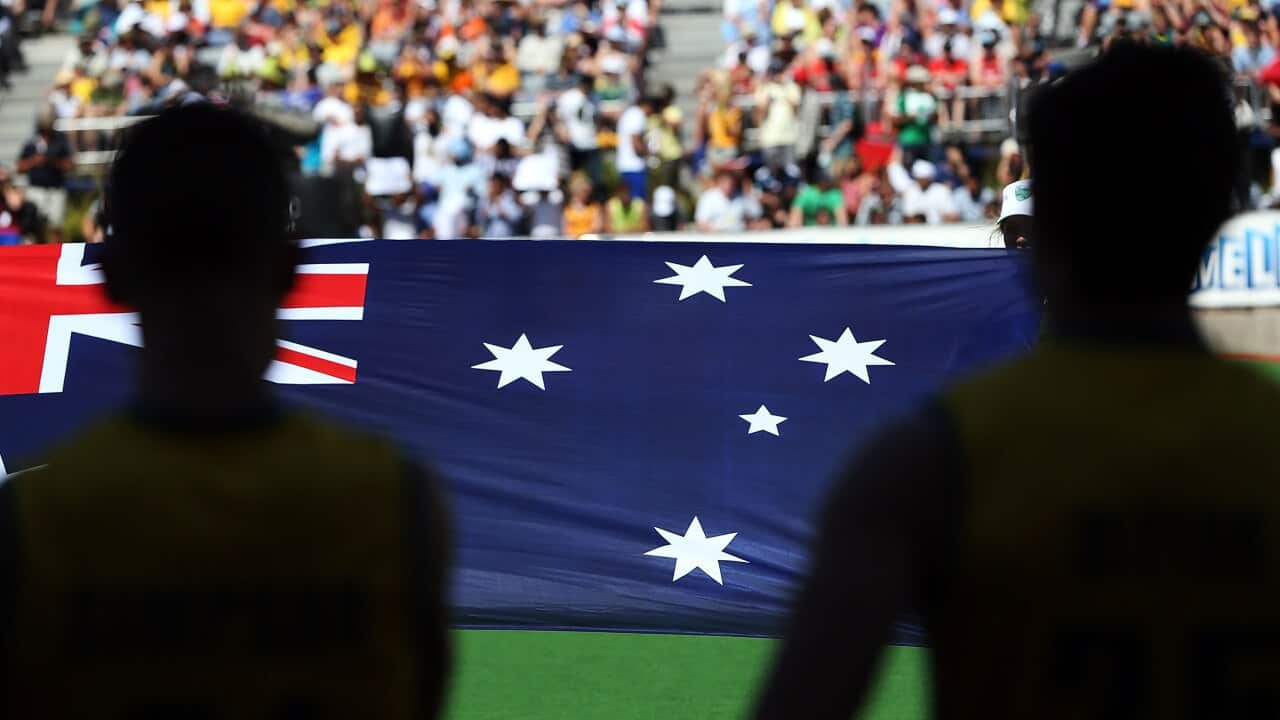As of 1 January 2021, the second line of Advance Australia Fair was changed from "For we are young and free" to "For we are one and free" - a tweak met with optimism by some, apathy by others, and calls for change.
After a challenging year, the prime minister Scott Morrison said the one-word change was an opportunity to bring 'unity' and recognise Indigenous people's connection to the land.
"While Australia as a modern nation may be relatively young, our country's story is ancient - as are the stories of the many First Nations peoples whose stewardship we rightly acknowledge and respect," said the Prime Minister. The Minister for Indigenous Australians, Ken Wyatt, told NITV News that the change was a minor yet significant step for the nation.
The Minister for Indigenous Australians, Ken Wyatt, told NITV News that the change was a minor yet significant step for the nation.

Indigenous Australians Minister Ken Wyatt said changing Australia's National Anthem was a pragmatic and symbolic gesture for Indigenous Australians. Source: AAP
"It's a great way of recognising our past, our people and contemporary Australia. And changing that word now means that we are part of one. One is a very powerful word", said Mr Wyatt.
Anthem change 'pragmatic and symbolic'
"The power of one as a country of people is something that we should celebrate and is something both pragmatic and symbolic," said Mr Wyatt.
The Noongar, Yamatji and Wongi man said the amendment was a pragmatic step for the country. Still, he admitted there is far more work needed to ensure First Nations people have equal opportunity in Australia.
He said Voice to Government and efforts to close the gap in Indigenous disadvantage are a priority for the Morrison government - as are treaty discussions.
"There is a lot that is being done that is both practical and has really good outcomes - and those are just a few. There are a whole host of things we are working on at the moment as a government," said Mr Wyatt.
"States and Territories are working through treaties because that is important. They have had substantive groups working on what the Voice to Government would look like in consultation with our people."
Advance Australia Fair was composed by Peter Dodds McCormick and first publicly performed in 1878.
The last amendment was in 1984 when the Hawke government changed the anthem to include women and girls. It was "Australia's sons" rejoice. The line is now "Australians all, let us rejoice".
This latest change brought a mixed reaction - while some welcomed the move as a gesture of symbolism, others said it did not go far enough.

Human rights lawyer Dr Hannah McGlade said growing up she felt the Australian national anthem excluded First Nations people. Source: Hannah McGlade
“I spoke to him and agreed, I’m really happy… And the more that we take steps to change these issues, the better and more hopeful we’ll be.
“I think it's very important to have a national anthem that truthfully reflects Australian history and who we are,” said Dr McGlade.
Dr McGlade told NITV News she welcomed the move but said substantive action must also be taken by governments.
“We are waiting to hear about the consultations headed by Professor Marcia Langton and Tom Calma into the Voice to Parliament or to the national Indigenous representative body.
“We critically need that kind of representation and voice. So, we're looking forward to hearing about the model that's under consideration,” said Dr McGlade.
Dr McGlade said singing the National Anthem was an uncomfortable experience for many First Nations people and something she experienced growing up in Australia.
“We were fully aware that the national anthem was not an inclusive anthem. Particularly the line in question that we were a young country - that’s not truthful,” she said.










